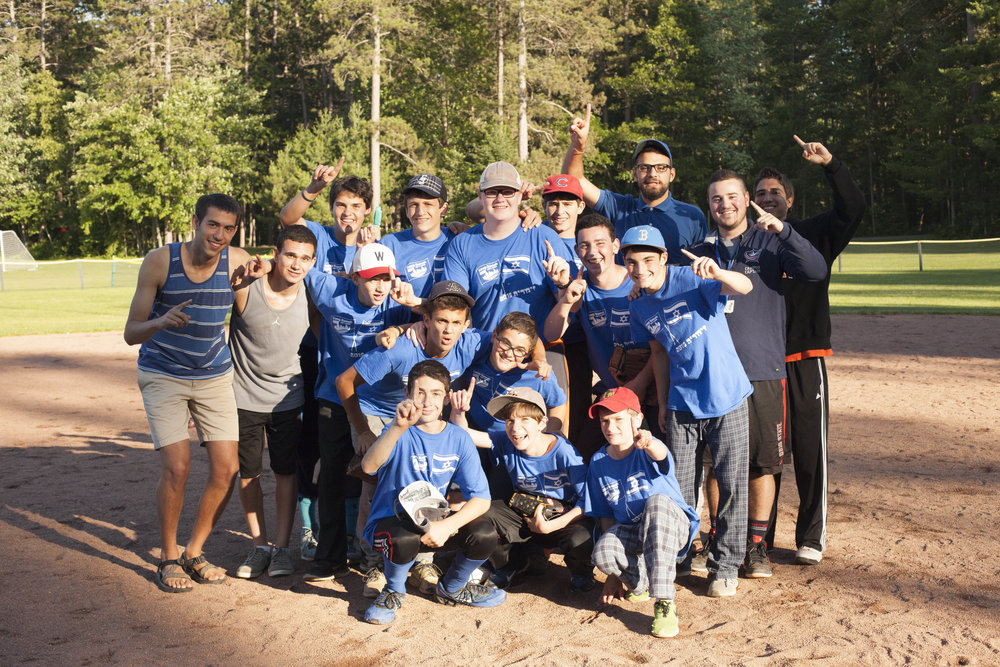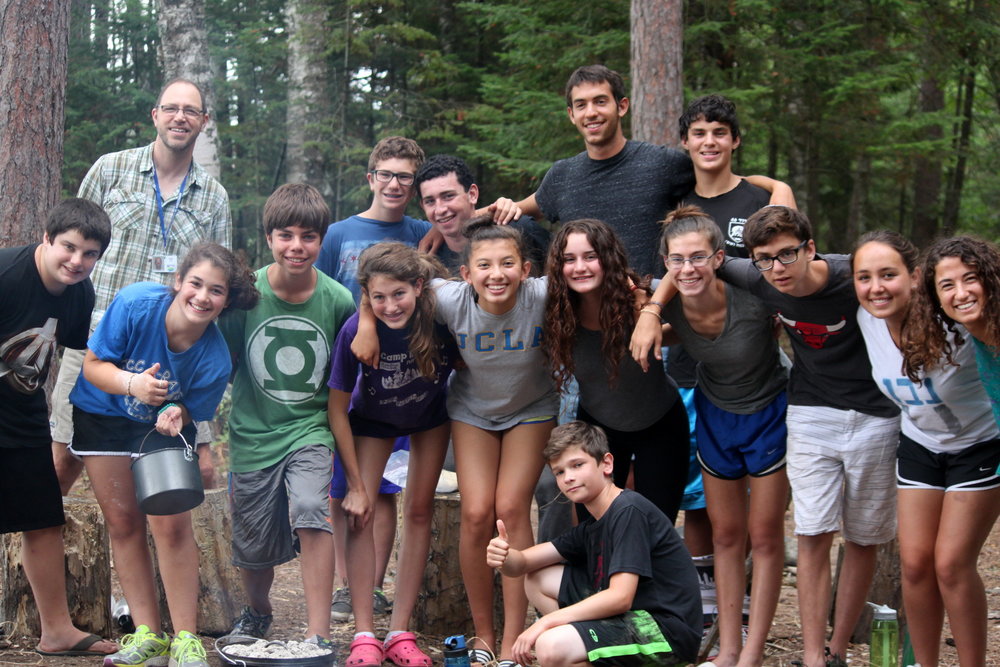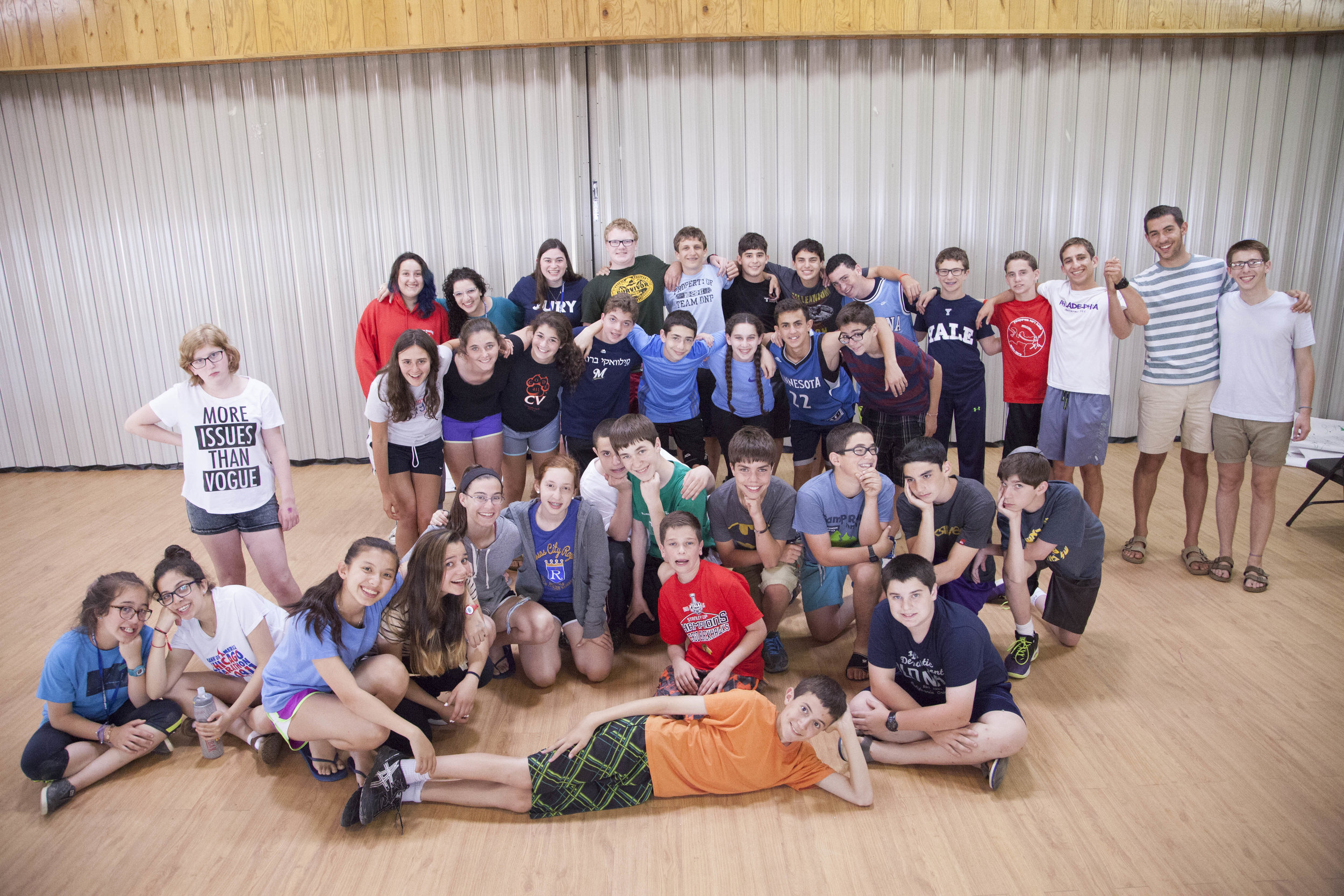One of the hidden gems of a summer at Ramah Wisconsin is the experiential programming planned by the cabin counselors. These thematic experiences combining Jewish content, interactive fun and multiple intelligences are thoughtfully planned by our college age staff with the support of a team of consultants in the Mercaz Educational Resource Center. Please enjoy the second in a series describing a few such programs from the 2015 season, written by veteran Rosh Aidah Louisa Kornblatt. 2015 Bogrim Shabbat Program: Are You There God? It’s Us, Bogrim by Louisa Kornblatt
In the Shabbat program, Are You There God? It’s Us, Bogrim, the 9th grade campers considered different conceptions of the Divine and began to think beyond the conventional child’s understanding of God. For many, it was the first time they had pictured the multiplicity of understandings of God and were able to construct an opinion of their own. The Shabbat began with the campers responding to a series of yes and no questions regarding their individual theology. With the questionnaire in hand, the campers processed the activity in groups and shared the preconceived notions they held about God as they entered into the Shabbat theme.
In the evening once everyone was stuffed from eating challah and energized from singing zmirot (Shabbat songs) after dinner, each camper received a handful of red and green stickers and a sheet that listed all of the names of God found in liturgy. They instructed the campers to mark five names of God they liked with one color and five names they did not like with the other. The campers were also able to do the same on a few sheets of paper hanging on the walls, so as to give the aidah a sense of the varied opinions in the room. After the exercise, the aidah divided into groups to debate which names they identified with and which names caused disagreement. They brainstormed the possible reasons why they were drawn to some names and not to others.
During Shabbat morning services, Ari Weinstein–a Bogrim counselor–spoke about the normalcy of wrestling with God as we grow and mature. He referenced the section in that week’s Torah portion, Chukat, when Moshe disobeys God by striking the rock instead of speaking and contrasted it to when the Israelites unconditionally accept the commandment to sacrifice the red heifer. Ari argued that Moshe is able to push back because he has a more developed relationship with God. He underscored how wrestling with God is a part of our heritage by gesturing to Jacob’s encounter with the angel and encouraged the campers to continually question their connection with God. The Dvar Torah provided a window into how both biblical figures as well as the campers’ staff who serve as Jewish role models struggle deeply with the idea of God. During the afternoon service, Rosh Bogrim Maya Zinkow taught a piece from Brachot–the first tractate of a collection in the Mishnah that deals with the regulations regarding different blessings in the service. In her Dvar Tefillah, she discussed the three reasons that there are 18 blessings during the Amidah, all of which have to do directly with God.
In the afternoon, Bogrim counselors shared their own personal theologies as a way of presenting to the aidah that there is no right or wrong way to connect with God. The belief statements of the four counselors served as a guiding “text” for the activity. One staff member spoke about a Cosmic God and how nature points upward to something higher, while a second counselor expressed belief that interpersonal relationships are infused with the Divine. He noted the Hasidic reclamation of Godliness and accessibility of connecting with God through people rather than turning to the sky. The third counselor shared how the heritage of the Jewish community passed down from generation to generation is God. God is the way Jews come together on Friday evenings and forge a community, whether in the promised land or in the diaspora. The final staff member referenced the Psalm 23: “Though I walk through the valley of death, I do not fear evil because God is with me.” He emphasized how God is always by our side in our darkest hour and will not abandon us when we are in need. Each of these perspectives widened the campers’ understanding of what God can be to them.
The campers and staff members left Shabbat feeling that no matter what their current relationship is with God or whether or not they even believe in God, the search for connection is continuous. There will be times when they feel a strong spiritual link to God and other times when they may struggle to feel something at all. Ultimately, there is no one way to interact with God.








